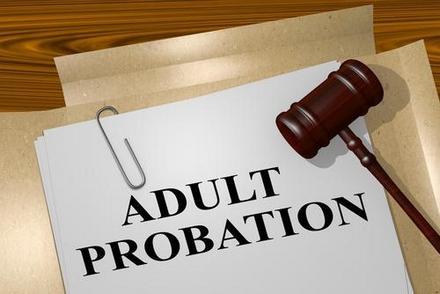TELEPHONES ANSWERED 24 HOURS A DAY
Recent Blog Posts
Is Hacking a Crime?
 It was in late 2018 when Russian citizen, Anton Bogdanov, was deported from Thailand to the United States. Recently, at the end of April, the US Federal Court leveled several accusations against him. Included in those accusations was the crime of hacking.
It was in late 2018 when Russian citizen, Anton Bogdanov, was deported from Thailand to the United States. Recently, at the end of April, the US Federal Court leveled several accusations against him. Included in those accusations was the crime of hacking.
Many today are familiar with the term of hacking. Whether they have heard of hacking into a school’s system to change grades, or hacking into a banking database, everyone essentially knows what hacking is. However, is it an actual crime? If so, what are the consequences?
The Federal Laws on Hacking
Hacking is one of the more well-known terms when it comes to computer crimes. Generally speaking, it refers to the act of accessing another person’s computer system, without their knowledge or permission. Hackers, those that perform the hacking, often have very different goals, although stealing data and committing financial fraud are the top reasons.
Understanding the Federal First Offenders Act
 If you have been arrested for a federal crime, you know what a scary thing it is. You are likely envisioning the worst possible outcome, spending years of your life in federal prison. However, this is not always the case. In the United States, there is a program that allows first offenders a chance to avoid jail time. This program cannot only eliminate the possibility of jail time altogether, but it can also help you escape the possibility of having a criminal record for your entire life.
If you have been arrested for a federal crime, you know what a scary thing it is. You are likely envisioning the worst possible outcome, spending years of your life in federal prison. However, this is not always the case. In the United States, there is a program that allows first offenders a chance to avoid jail time. This program cannot only eliminate the possibility of jail time altogether, but it can also help you escape the possibility of having a criminal record for your entire life.
So, what is this program? It is the Federal First Offenders Act (FFOA), and anyone charged with a federal crime needs to speak to an experienced federal criminal defense attorney that can review their case and determine if they are eligible.
The Basics of the Federal First Offenders Act
The FFOA is a probation program designed to help rehabilitate first-time offenders rather than punish them. As the name of the Act states, only those facing charges for the first time are eligible for the program. Upon entering into the program, the accused is placed on probation for a certain amount of time.
Have You Done DNA Testing? You Could be Part of a Criminal Investigation
 Many people have seen the television advertisements for DNA testing kits that typically come from genealogy websites such as FamilyTreeDNA. However, what started as a simple curiosity may turn into something much more if the police try to obtain your DNA information from one of these databases. They have the right to do it and have even been successful in the past putting people away using this type of evidence. Critics of this practice, however, say it is a slippery slope and one that could ruin the lives of innocent people who are falsely charged with a crime.
Many people have seen the television advertisements for DNA testing kits that typically come from genealogy websites such as FamilyTreeDNA. However, what started as a simple curiosity may turn into something much more if the police try to obtain your DNA information from one of these databases. They have the right to do it and have even been successful in the past putting people away using this type of evidence. Critics of this practice, however, say it is a slippery slope and one that could ruin the lives of innocent people who are falsely charged with a crime.
Law Enforcement DNA Collection Techniques
It was not that long ago in 2018 when police were able to find a man connected to at least 45 rapes and 12 murders that occurred during the 1970s and 1980s. This former policeman was dubbed the Golden State Killer and his DNA was found through a public database.
What Is Securities Fraud?
 There are many types of fraud that are classified as federal offenses. Many of these types of fraud are self-explanatory. Mail fraud indicates fraud that used the U.S. Postal Service to carry out the act. Wire fraud uses electronics such as email or the Internet to commit fraud. Securities fraud sometimes has people questioning what it really means, particularly if they’ve been accused of it. So, what is securities fraud? Perhaps more importantly, if you’ve been charged, what penalties are you facing?
Security Fraud Defined
The term “security” is a broad term that refers to a number of different investments. Municipal bonds, corporate stocks, bank notes, and investment contracts are all considered securities. Therefore, securities fraud occurs when one person lies, cheats, steals, or deceits someone for financial gain involving a security.
Securities fraud is generally considered a white-collar crime. Although there are federal laws on the topic, states also have their own statutes pertaining to securities fraud. Most cases, however, are tried as a federal crime. The two main federal statutes involved in a securities fraud case are the Securities Act of 1933 and the Securities Exchange Act of 1934.
Types of Securities Fraud
Securities fraud can occur in a number of ways. Some ways though, are more common than others. The most common types are:
There are many types of fraud that are classified as federal offenses. Many of these types of fraud are self-explanatory. Mail fraud indicates fraud that used the U.S. Postal Service to carry out the act. Wire fraud uses electronics such as email or the Internet to commit fraud. Securities fraud sometimes has people questioning what it really means, particularly if they’ve been accused of it. So, what is securities fraud? Perhaps more importantly, if you’ve been charged, what penalties are you facing?
Security Fraud Defined
The term “security” is a broad term that refers to a number of different investments. Municipal bonds, corporate stocks, bank notes, and investment contracts are all considered securities. Therefore, securities fraud occurs when one person lies, cheats, steals, or deceits someone for financial gain involving a security.
Securities fraud is generally considered a white-collar crime. Although there are federal laws on the topic, states also have their own statutes pertaining to securities fraud. Most cases, however, are tried as a federal crime. The two main federal statutes involved in a securities fraud case are the Securities Act of 1933 and the Securities Exchange Act of 1934.
Types of Securities Fraud
Securities fraud can occur in a number of ways. Some ways though, are more common than others. The most common types are:
- Misrepresentations. Securities depend on someone’s ability to predict how a security will perform in the future. When someone lies or makes false statements about how a security will perform, it is often considered securities fraud. For example, if a stockbroker made a commercial claiming that a stock was going to perform very well when they didn’t know that as fact, just to increase the sale of that stock, it is considered securities fraud.
What Does the Crime of Money Laundering Involve?
 For Lori Loughlin, her husband, and several others involved in the college admissions scandal, the news only gets worse. Now, these defendants and several others have been charged with money laundering in addition to the charges they were already facing. As something that is often only seen on television and in gangster movies, the news has some wondering what the crime of money laundering really involves.
For Lori Loughlin, her husband, and several others involved in the college admissions scandal, the news only gets worse. Now, these defendants and several others have been charged with money laundering in addition to the charges they were already facing. As something that is often only seen on television and in gangster movies, the news has some wondering what the crime of money laundering really involves.
What Is Money Laundering?
Money laundering in its simplest form is taking money from one source and placing it into another to make it appear legitimate. The purpose is to hide money obtained from illegal activity, such as gang activity, and make it appear as though it was obtained through legal means. Moving this money is essentially “cleaning” it, which is where money laundering got its name.
One of the most common money laundering schemes involves setting up a business known as a “shell company”. This business will then deposit the money obtained illegally and create false receipts and invoices indicating the money was obtained legally. The shell company is really just a front for the money laundering scheme, although some shell companies also operate as a legitimate business, as well.
The Crime of Extortion Explained
 It was in late March that Michael Avenatti, the attorney that became famous while representing Stormy Daniels, was arrested on multiple charges, including extortion. Extortion becomes a federal crime when certain factors are involved, such as the use of mail or computer communication to extort someone, or when the victim of the crime is a federal employee or public official.
It was in late March that Michael Avenatti, the attorney that became famous while representing Stormy Daniels, was arrested on multiple charges, including extortion. Extortion becomes a federal crime when certain factors are involved, such as the use of mail or computer communication to extort someone, or when the victim of the crime is a federal employee or public official.
There are many different types of extortion covered under the United States Code, and each carries its own penalties. When a person is facing charges of extortion, it is important they speak to a federal criminal defense attorney that can help them retain their freedom.
What Is Extortion?
Extortion occurs when a person uses force or threatens to use force in order to take money or something else of value from another person. This threat of harm is essential to any extortion case, but that does not mean the harm must be physical in nature. A person charged with extortion may threaten financial harm, destruction of property, and abuse of power.
What Is Obstruction of Justice?
 The term “obstruction of justice” is one that is heard a lot in the news these days. What does it really mean though, to obstruct justice? What is involved in the crime, and what are the penalties if convicted? To answer these questions, one must look at the legal statutes found in The United States Code.
The term “obstruction of justice” is one that is heard a lot in the news these days. What does it really mean though, to obstruct justice? What is involved in the crime, and what are the penalties if convicted? To answer these questions, one must look at the legal statutes found in The United States Code.
Obstruction of Justice, Section 1503
When most people think of obstruction of justice, they think of the type that falls under 18 U.S.C. Section 1503. Under this federal statute, obstruction of justice occurs when a person influences, obstructs, or hinders the administration of justice through corruption, force, threats, or threatening letters.
This is the legal definition most news stories today point towards. President Donald Trump, for example, has been accused of obstructing justice in Robert Mueller’s investigation. Now that Mueller’s report has gone to the U.S. Attorney General, if it is found there was obstruction of justice, Trump would have had to obstruct the federal judicial system.
What Happens If You Violate Federal Probation?
 Federal probation works just like probation in the state of Illinois. If someone is convicted of a federal crime, the judge may place them on probation in conjunction with a sentence in a federal prison. A judge may also determine the person simply pays a fine and serves probation, without a prison sentence. Also just like probation in Illinois, anyone found in violation of their probation could face serious consequences. It is for this reason that anyone placed on federal probation fully reads and understands the federal conditions of probation.
Violations of Federal Probation
There are a number of ways a person can violate probation, even if they do not realize they are doing so at the time. These include:
Federal probation works just like probation in the state of Illinois. If someone is convicted of a federal crime, the judge may place them on probation in conjunction with a sentence in a federal prison. A judge may also determine the person simply pays a fine and serves probation, without a prison sentence. Also just like probation in Illinois, anyone found in violation of their probation could face serious consequences. It is for this reason that anyone placed on federal probation fully reads and understands the federal conditions of probation.
Violations of Federal Probation
There are a number of ways a person can violate probation, even if they do not realize they are doing so at the time. These include:
- Failing to report a change of address to their probation officer;
- Moving without first obtaining permission from their probation officer;
- Committing a crime;
- Failure to pass a urine test;
What Is Mail Fraud and Honest Services Fraud?
 In mid-March, news of the college entrance scam involving Lori Loughlin and Felicity Huffman broke throughout the country. Loughlin is accused of bribing school officials at USC to allow her two daughters admittance into the university. Her husband, Mossimo Giannulli, was also arrested for his involvement in the alleged crime. Huffman meanwhile, was arrested for bribing school officials into giving her daughter more time during the SATs.
In mid-March, news of the college entrance scam involving Lori Loughlin and Felicity Huffman broke throughout the country. Loughlin is accused of bribing school officials at USC to allow her two daughters admittance into the university. Her husband, Mossimo Giannulli, was also arrested for his involvement in the alleged crime. Huffman meanwhile, was arrested for bribing school officials into giving her daughter more time during the SATs.
Now all three face charges of conspiracy to commit mail fraud and honest services mail fraud. What do the legal statutes say these crimes involve?
What Is Mail Fraud?
Generally speaking, mail fraud is any scheme that involves the United States Postal Service to defraud someone or perform fraudulent acts. This crime is covered under Title 18 of the United States Code, Section 1341. The Code also states that not only is committing the act of defrauding a crime, but an attempted act is as well. This means the act does not have to be successful in order to be considered mail fraud.
What Is Bankruptcy Fraud?
 In February 2019, a man from Madison, Wisconsin was sentenced to one year in federal prison for bankruptcy fraud. Before a guilty plea was entered, it was found that the man lied about a real estate property on his bankruptcy claim, lied at the Meeting of Creditors, and then lied again while testifying in federal court.
While this man may have attempted to hide assets, what about those that simply make a mistake when filing for bankruptcy? Do they face the possibility of bankruptcy fraud charges, too? What exactly is bankruptcy fraud?
What Is Bankruptcy Fraud?
When a person is suspected of bankruptcy fraud, they are first investigated by the Federal Bureau of Investigation. They are then prosecuted by the U.S. Department of Justice in federal court and, if convicted, are sentenced to federal prison. The amount of time they spend is often at the discretion of the judge.
Most of these crimes are committed by the debtor, or the person filing the bankruptcy claim. There are times though, when creditors, bankruptcy trustees, court personnel, and other third parties are found guilty of bankruptcy fraud.
Types of Bankruptcy Fraud
Bankruptcy fraud is covered in the federal statute 18 of the United States Code, Sections 152 and 157. This statute identifies many different types of bankruptcy fraud including:
In February 2019, a man from Madison, Wisconsin was sentenced to one year in federal prison for bankruptcy fraud. Before a guilty plea was entered, it was found that the man lied about a real estate property on his bankruptcy claim, lied at the Meeting of Creditors, and then lied again while testifying in federal court.
While this man may have attempted to hide assets, what about those that simply make a mistake when filing for bankruptcy? Do they face the possibility of bankruptcy fraud charges, too? What exactly is bankruptcy fraud?
What Is Bankruptcy Fraud?
When a person is suspected of bankruptcy fraud, they are first investigated by the Federal Bureau of Investigation. They are then prosecuted by the U.S. Department of Justice in federal court and, if convicted, are sentenced to federal prison. The amount of time they spend is often at the discretion of the judge.
Most of these crimes are committed by the debtor, or the person filing the bankruptcy claim. There are times though, when creditors, bankruptcy trustees, court personnel, and other third parties are found guilty of bankruptcy fraud.
Types of Bankruptcy Fraud
Bankruptcy fraud is covered in the federal statute 18 of the United States Code, Sections 152 and 157. This statute identifies many different types of bankruptcy fraud including:
- Failure to include assets in the bankruptcy claim;




